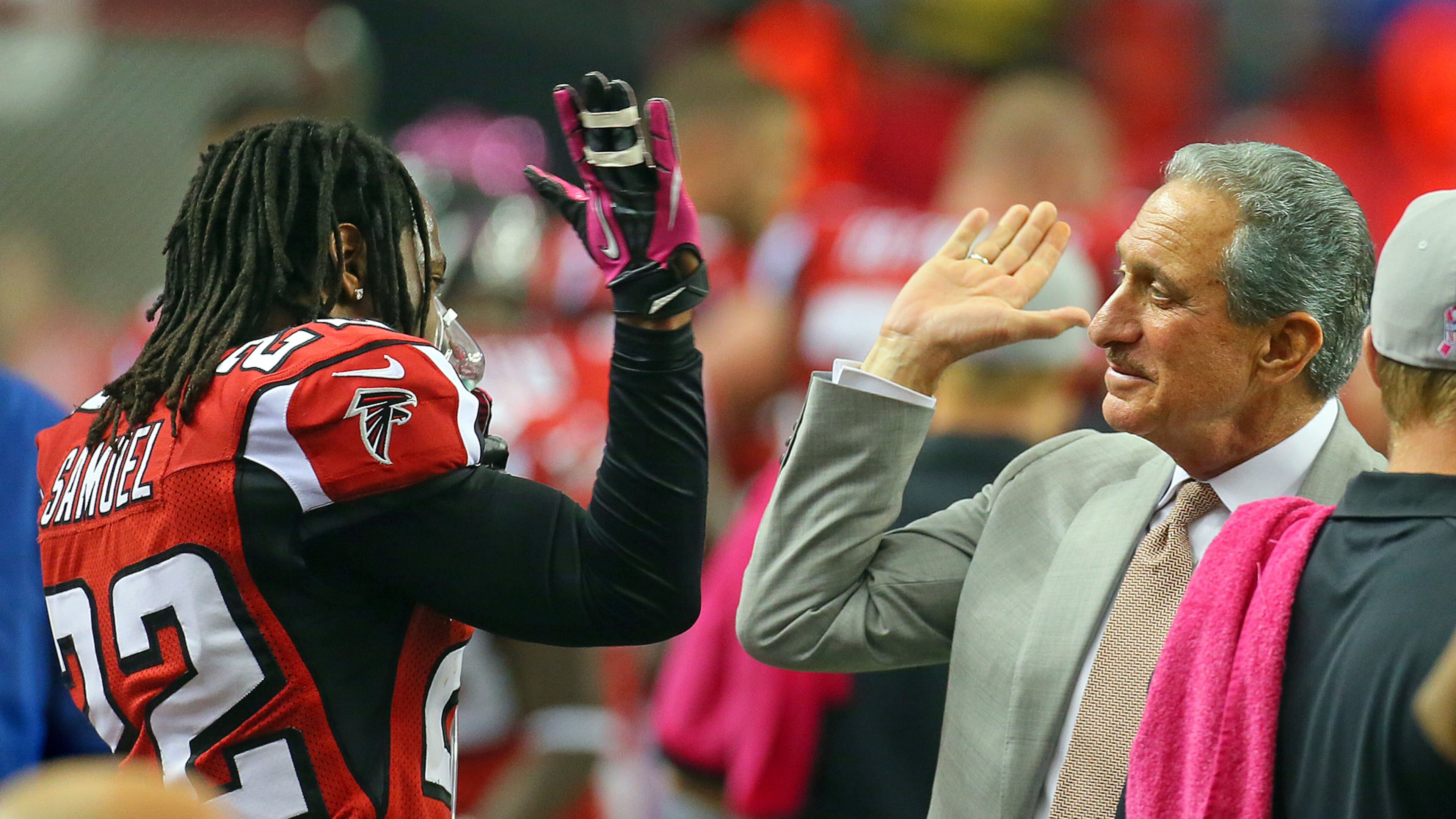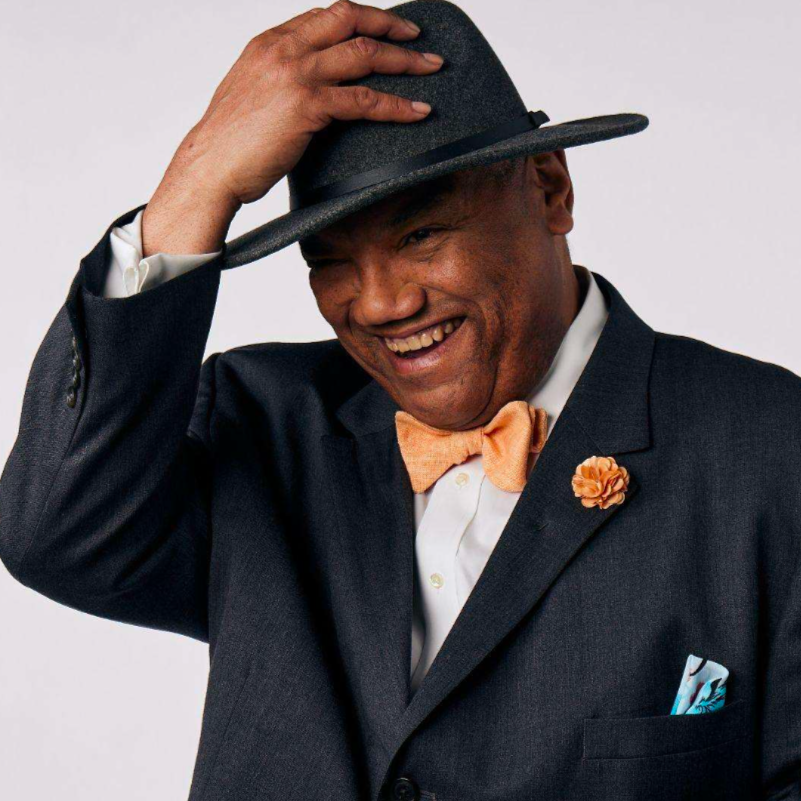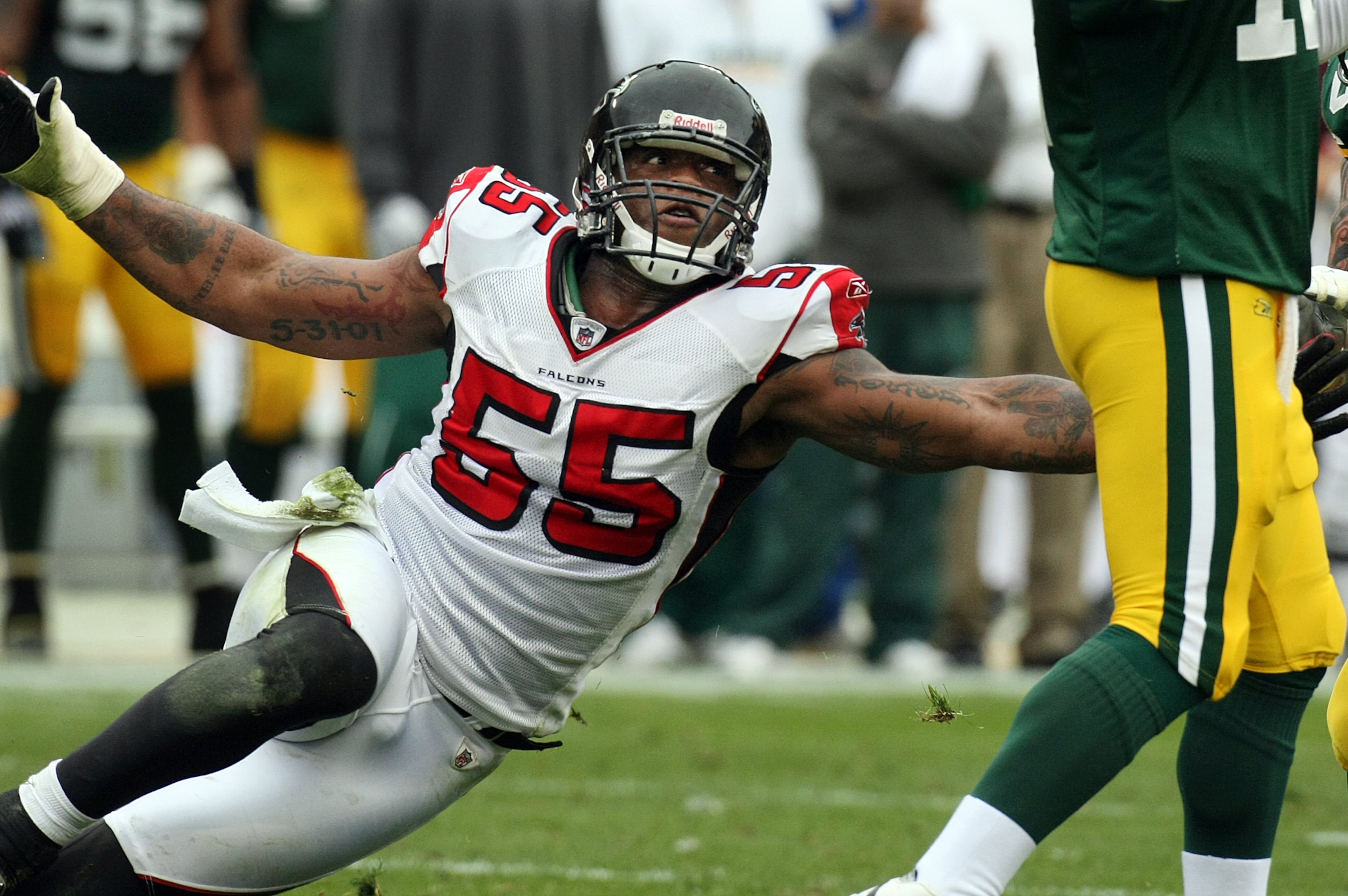Asante Samuel Sr. has strong case for Pro Football Hall of Fame enshrinement

Nothing ever came easy for Asante Samuel Sr.
He was a 5-foot-10, 185-pound cornerback who played at Central Florida and was drafted in the fourth round by the New England Patriots.
Samuel, who played with the Patriots (2003-07), Eagles (2008-11) and Falcons 2012-13), went on to become one of the top cornerbacks of his era and was on the list of 50 players nominated for the Pro Football Hall of Fame’s Class of 2026.
It was his first time. The colorful Samuel took his case to the people via a post on social media and appearances on podcasts from Terrell Owens to Deion Sanders.
Most agreed that he should be considered with some of the cornerbacks who were already enshrined in Canton: Darrell Revis, Champ Bailey and Ty Law.
“We do the comparisons, and I’m better. It’s not even questionable,” Samuel told New England Patriots on SI in October 2015. “Y’all can make all these excuses, but you can say whatever you want. Don’t like me, whatever, but compare me to your best corner. His two best seasons, three best seasons. You compare mine and see what you get.”
Samuel was a nice fit for the Falcons’ secondary.
Once his agent, Alonzo Shavers, and Falcons negotiator Nick Polk finished crunching numbers, the Falcons traded a seventh-round pick to the Philadelphia Eagles to complete the deal for the four-time Pro Bowler back in 2012.
“I’m happy to be a Falcon,” Samuel said at the time. “I know the city is embracing me. I’m excited. I know the Falcons already have an excellent team, excellent coaches, schemes and talent. I’m just going to add to (that and) try to get to the one common goal.”
The Falcons restructured Samuel’s contract that called for him to make $9.9 million in 2012 and $11.4 million in ’13. They agreed to a three-year, $18.5 million deal.
“What was important for us was that he become a Falcon,” Shavers said. “From that standpoint, it was about as extensive as it gets. We were able to come up with something that they can live with and we can live with.”
Samuel brought some swagger to the team.
“I’m a confident guy,” Samuel said. “I’m going to always have confidence, and that’s how I play and how I operate on a daily basis.”
Samuel had a breakthrough in his fourth season with the Patriots, when he led the league with 10 interceptions and 24 pass breakups. He was a part of the Patriots’ secondary during their early Super Bowl runs.
He crafted a career that is indeed worthy of consideration for Canton, Ohio.
Samuel’s numbers are impressive.
In 157 games, Samuel intercepted 51 passes -- including leading the league with 10 interceptions and 24 pass breakups in 2006 — and returned six interceptions for touchdowns. He led the NFL in passes defended twice (2006 and ’08) and amassed 164 pass breakups in his career.
During his playing days, it didn’t register with him that he was putting together such a special career. He was in the group of 152 modern-era players and advanced to the group of 50 for the Class of 2006. He case for the Pro Football Hall of Fame has major momentum.
Samuel is convince that he has the resume to advance — this year, or years in the future.
“We all want to be recognized as one of the greatest at the position ... It’s an awesome feeling,” Samuel said. “It’s one thing to be selected to the Pro Football Hall of Fame, and it’s another thing to feel like you deserve to be there based on your resume. Having to wait your turn is a process and it gets a little frustrating because we don’t know the criteria and things like that.”
During his time with the Patriots, he helped them win two Super Bowls, was a first-team All-Pro selection, a Pro Bowler and was named to the franchise’s All-Decade team.
He gives the Patriots credit for the foundation of his pro career.
“Being born into that system, a bunch of vets on the team really helped guide my career a lot,” Samuel said. “I think that was the best thing that could ever happen to me, being drafted to the to the Patriots. ... I wasn’t out doing a lot of crazy things that I shouldn’t have been doing. So I was able to focus, then I got my opportunity, and when I finally got my opportunity, I was able to show what I can do in my abilities.”
Ty Law (Class of 2019) and safety Rodney Harrison (also a nominee for the Class of ’26) were also in the secondary.
When Law picked up his 50th career interception, Samuel took notice.
He figured that the best cornerbacks don’t just guard the receivers; they take the ball away, too.
Over his career, Samuel made up for any physical limitations with a knack for reading plays and reacting. That was a big reason why he played so long in spite of his modest background, smallish size and unexceptional speed.
In 31 fewer regular-season games, Samuel intercepted only two fewer passes than Sanders (53-51). He also picked off seven passes in the playoffs, where Sanders had five — meaning each had 58 career picks, counting the postseason. Finally, both players own two Super Bowl rings.
Nowadays, Samuel is a proud father and watches his son, Asante Jr., play cornerback for the Los Angeles Chargers.


